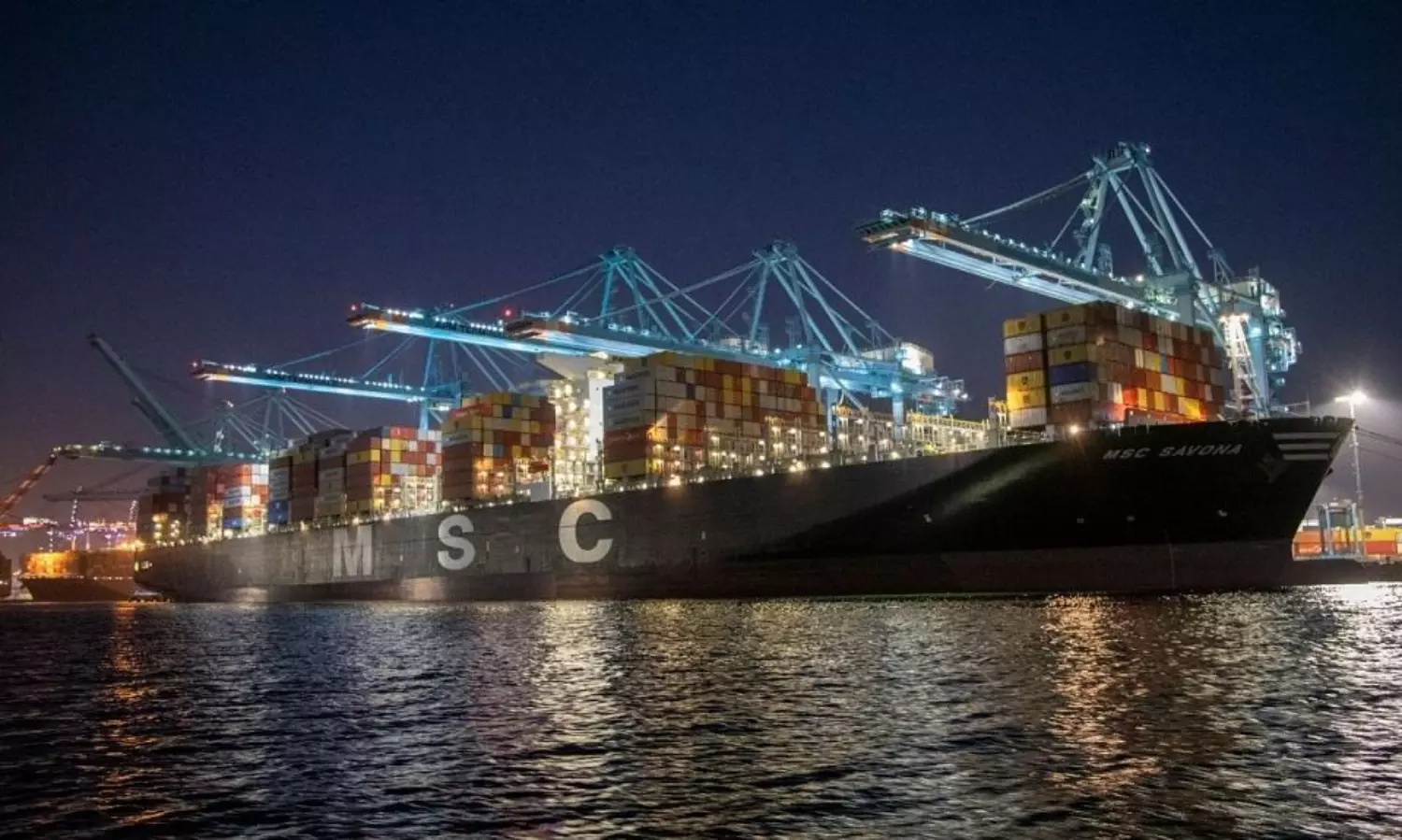JIT arrivals by containerships can reduce emissions by 14% per voyage
There were savings of 5.90% (24 hours scenario) and 4.23%(12 hours scenario) in IMO study

Containerships can reduce fuel consumption and resulting carbon dioxide emissions by 14 percent on a per voyage basis using just in time (JIT) arrival, according to a new study.
JIT is an important tool that can contribute to a ship attaining its required carbon intensity indicator (CII) and associated CII rating in accordance with International Maritime Organization (IMO)'s short-term greenhouse gas (GHG) reduction measure, which will enter into force later this year, the study added.
"JIT can be taken up, together with other operational measures, in the enhanced Ship Energy Efficiency Management Plan (SEEMP) which will play a central role in the implementation of IMO's recent energy efficiency measures."
The study, commissioned by the IMO-Norway GreenVoyage2050's Global Industry Alliance to Support Low Carbon Shipping (Low Carbon GIA) and conducted by MarineTraffic and Energy and Environmental Research Associates (EERA), uses AIS data from the calendar year 2019 (pre-pandemic), to place the impact of JIT on fuel consumption and emissions by optimising voyages in three scenarios:
*Over the entire voyage,
* Over the last 24 hours, and
*Over the last 12 hours.
"The results show that while optimising speed over the entire duration of a voyage offers the greatest saving opportunity (displaying a mean fuel saving per voyage of 14.16 percent), there were benefits in all scenarios with savings of 5.90 percent (24 hours scenario) and 4.23 percent (12 hours scenario), respectively. This indicates that implementing JIT over the last 12 hours of a voyage can already greatly contribute to fuels and emissions savings."
"In fighting climate change, global shipping has a steep mountain to climb, and we need to pull all levers to deliver in line with the Paris Agreement," says Capt. Andreas M. van der Wurff, Port Optimisation Manager, A.P. Moller-Maersk and Chair of the Low Carbon GIA Ship-Port Interface workstream. "The study underlines that while we work to accelerate and scale the availability of the future green fuels, in the short-term significant emissions reductions can be achieved by bringing vessels, terminals and ports together to exchange standardised data and facilitate Just In Time arrivals."
The Low Carbon GIA is a public-private partnership to develop innovative solutions and address common barriers for decarbonising the shipping sector.
Only 20 ships waiting across LA/LB ports
One of the key reasons for delays across container ships used to be the ports of Los Angeles/Long Beach. Total container ships backed up across the ports were 20 yesterday, a new record low, according to data from Captain J. Kipling (Kip) Louttit, Executive Director, Marine Exchange of Southern California & Vessel Traffic Service Los Angeles and Long Beach San Pedro, CA.
The 20 container ships backed up include 0 container ships anchored awaiting a berth off the ports of LA/LB/Huntington + 0 loitering within 25 miles of the ports + 20 slow speed steaming or loitering outside the Safety and Air Quality Area (SAQA).
The 20 container ships in the backup are 89 fewer than the record of 109 on January 9, 2022. "To phrase this another way, 0 container ships are within 25 miles of LA and LB awaiting a berth, which is great, because normal pre-COVID was 0-1."
Vessel delays decline
While 10.5 percent of the global fleet is still unavailable due to supply chain delays, it has dropped from 13.8 percent in January, Sea-Intelligence said in an update earlier this month.
"What is interesting to note is that in Europe, there has been continuing substantial improvement in the overall congestion index over the past month – although it should also be noted that despite the very visible decline, the level of congestion is still very high, compared with pre-pandemic normality."
On a port level, distinct improvements are seen in Spain, Italy, and Greece, whereas at the other end of the scale there is not much improvement in Rotterdam and Hamburg, Sea-Intelligence report said.


